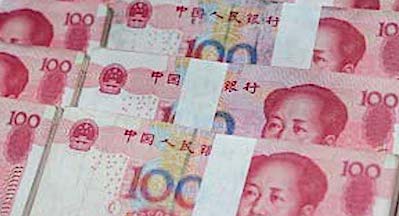The £125 million Baillie Gifford China Growth Trust plc announced that its net asset value total return was negative 40.9% and its share price total return was negative 40.8% for the year to January 31, 2024, compared with a total return of negative 30.5% for the MSCI China All Shares Index.
The fund is proposing a final dividend of 2p per share, an increase of 17.6%.
The Baillie Gifford fund’s biggest investments include ByteDance, Tencent, Alibaba, Luxury baijiu maker Kweichow Moutai, China Merchants Bank, Zijin Mining Group, Ping An Insurance, gaming firm NetEase, heating and cooling manufacturermanufacturer Zhejiang Sanhua Intelligent Controls, and White goods and robotics manufacturer Midea Group.
“In the period from 16 September 2020 (the date of the adoption of the China strategy), the company’s net asset value and share price returned negative 49.3% and negative 50.5% respectively compared to a total return of negative 39.4% for the MSCI China All Shares Index …” said the fund.
“The portfolio’s overwhelming exposure to non state-owned enterprise companies, particularly in the financials space, plus its underweight positions in energy and utilities (the two best performing sectors within the companies universe), contributed to the company’s relative underperformance …
“Contributors to performance included all four state-owned enterprises held in the Company’s portfolio: Weichai Power, Brilliance China Automotive, Kweichow Moutai and Zijin Mining however the largest contributor to performance was ByteDance …
“The main stock detractors to performance were varied and included Li-Ning, Glodon and Meituan …
“The company has also bought a number of stocks over the year. These include PDD Holdings, an ecommerce platform; BYD, a company that makes electric vehicles; Silergy, a company that designs analogue semiconductors; and Anker Innovations, a Chinese consumer electronic company …
“Over the period the company has bought back 160,700 shares to be held in treasury …
“Whilst investment in China may prove volatile over a short term horizon, the managers have a long-term investment approach and are optimistic about the prospects for the future.”
The fund’s managers Roderick Snell and Sophie Earnshaw wrote: “The year under review was disappointing and painful for Chinese equities, with our index falling by 30.5%. Indeed, it marks an extraordinary third consecutive year of drawdowns in our asset class.
“In the main, returns over the period have been driven by macroeconomics and geopolitics rather than company fundamentals. The holdings within the company’s portfolio continue to perform well operationally.
“Our listed holdings delivered 17.7% earnings growth in the financial year versus index-level earnings growth of only 2.1%. Despite this, the portfolio derated from a price-earnings multiple of 19x to 12x …
“This extraordinary divergence between earnings and value is a reflection of sentiment, rather than operational performance. Sentiment is driven both by the economic transition alluded to above and by geopolitics between the US and China.
“As China’s success in transitioning to its new growth model becomes clearer, it is likely that sentiment will improve and that other pools of capital, in addition to the US, will become materially invested in the attractive returns on offer in China.
“Despite a difficult couple of years of performance, Baillie Gifford continues to believe that China remains an exciting hunting ground for growth investors. As such, we continue to invest in our capabilities here and have added significant resource.
“With valuations low in both an absolute and relative sense, we believe that the opportunity in China has becoming even more compelling. As such, we remain optimistic about future returns.”
